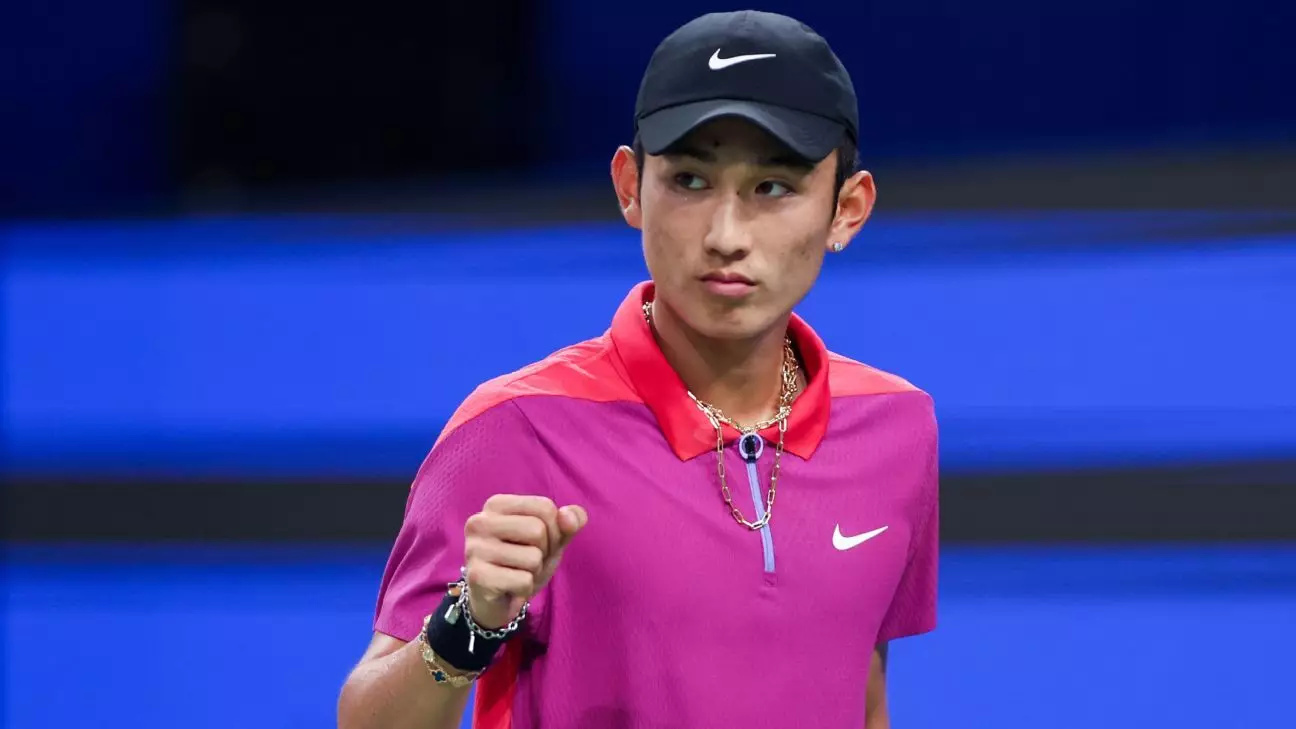In a remarkable display of talent and determination, 19-year-old Shang Juncheng made history at the Chengdu Open by defeating Italy’s Lorenzo Musetti, an Olympic medalist, with a compelling score of 7-6 (4), 6-1. This victory marked Shang’s first ATP title, propelling him into the spotlight as only the second male player from China to achieve this feat. Currently positioned as China’s No. 2 player and ranked 55th globally, Shang is not just breaking records; he’s setting the stage for a new wave of Chinese representation in men’s tennis.
Shang’s triumph also highlights his potential as the youngest ATP winner of the season, a significant milestone that brings with it both opportunities and expectations. As the ATP circuit becomes increasingly competitive, the pressure mounts for young athletes like Shang to perform at high levels consistently.
While women’s tennis in China has experienced considerable success, notably with Li Na’s prestigious victories at the French Open in 2011 and the Australian Open in 2014, the men’s scene has historically struggled to find its footing. The emergence of Wu Yibing as the first Chinese player to win an ATP trophy last year at the Dallas Open was a watershed moment, but the path remained challenging until Shang’s recent victory.
In contrast to Li Na’s trailblazing career, the men’s game has lacked a similar icon until now. Shang’s win signifies a pivotal point in the evolution of Chinese men’s tennis, as he joins Wu Yibing in a growing group of competitors signaling potential for future success on the ATP Tour.
Shang Juncheng’s victory not only adds to his accolades but also enhances his prospects for qualifying for the prestigious Next Gen ATP Finals, set to take place in Saudi Arabia later this year. This event features the top under-20 singles players from the ATP Tour, and Shang’s performance has placed him in contention for a spot among these elite competitors. For young players aiming to make their mark, participation in such high-stakes tournaments plays a crucial role in their development and exposure.
The journey towards becoming a top-tier player is fraught with challenges, and Shang’s ability to maintain focus and resilience will be paramount in the coming months as he competes against some of the best young talents in the sport.
The Hangzhou Open provided a stage for another significant story in tennis, with Croatian wild card Marin Cilic claiming victory as the lowest-ranked champion in ATP Tour history. His win over Zhang Zhizhen not only celebrated Cilic’s remarkable comeback after a knee injury but also served as an inspiration for younger players like Shang. Cilic’s rise from 777th to 212th in the rankings demonstrates that resilience can yield rewards—an encouraging narrative for aspiring athletes who may face their own setbacks.
As Chinese tennis begins to carve out its identity on the ATP Tour, figures like Shang Juncheng and Wu Yibing represent a promising future. With each match and tournament, they continue to inspire hope for the next generation, suggesting that greatness is not just reserved for a few, but is attainable for many who dare to dream big.


Leave a Reply